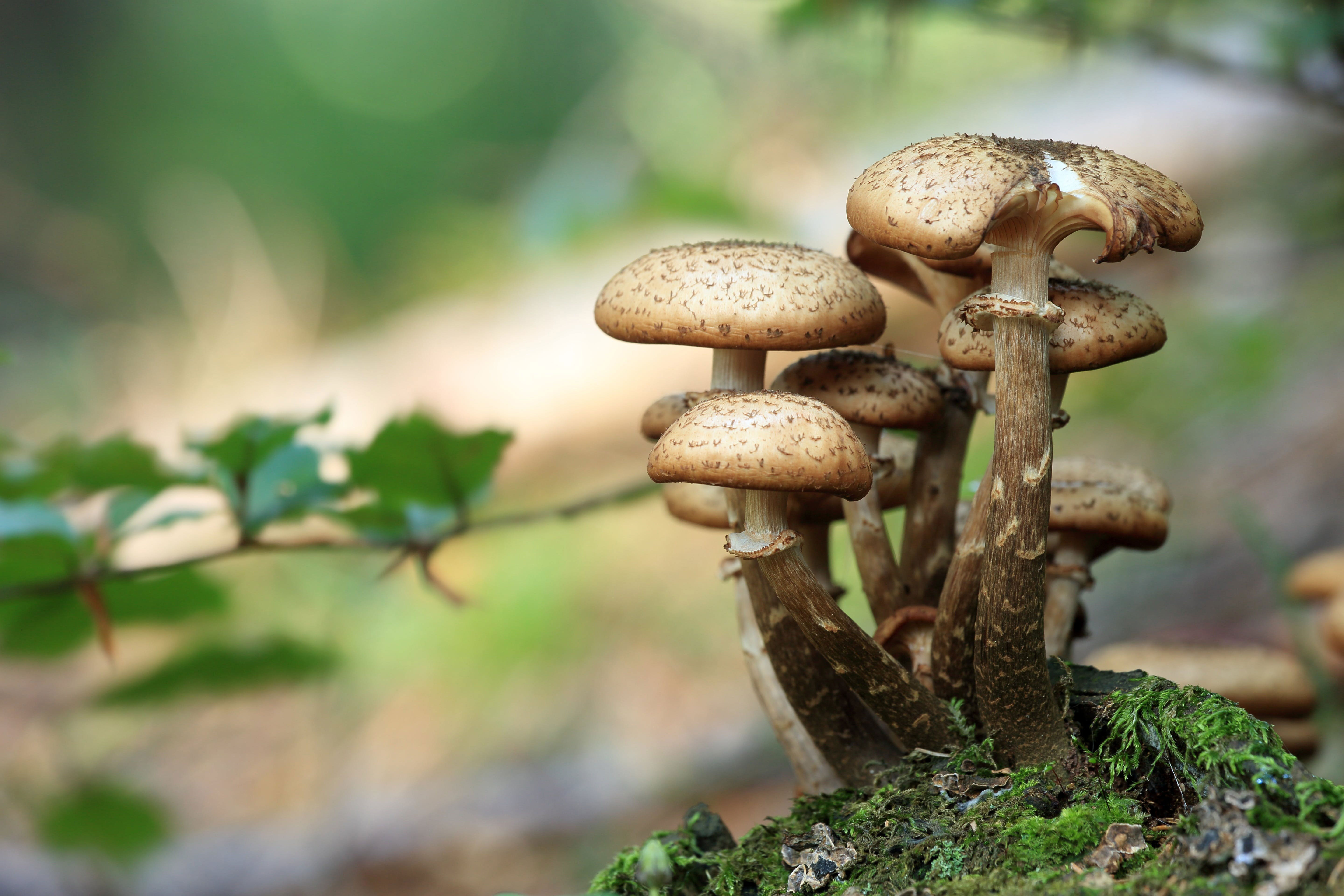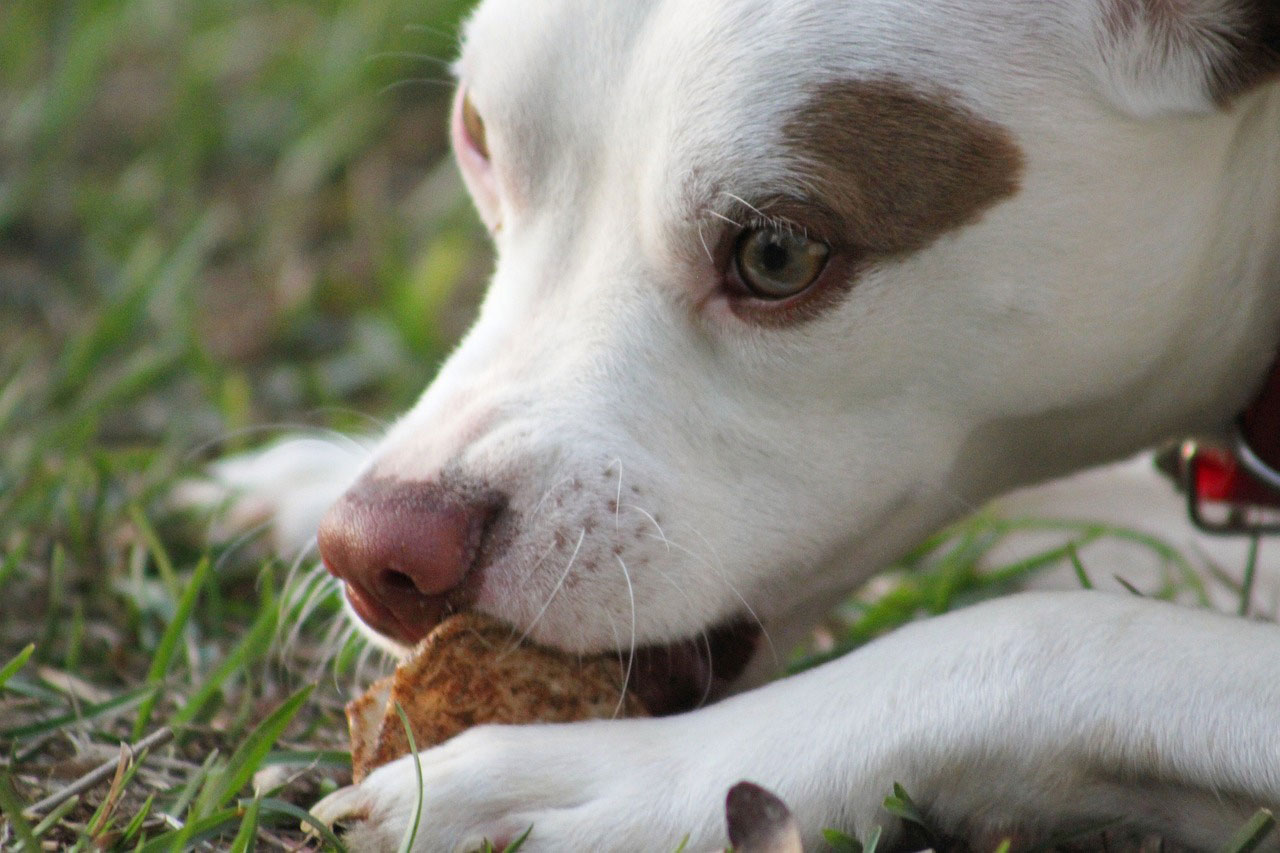Are you a dog owner puzzled by the question “Can dogs eat mushrooms?” The answer is a bit complicated. It depends on the mushroom species and how it affects dogs. So is it safe for dogs to eat these fungi, or should they stay away? Here’s a simple answer.
While most wild mushrooms are safe, a small fraction, particularly Amanita phalloides and Inocybe spp., are highly toxic to dogs. These fungi can cause rapid, severe symptoms, ranging from gastrointestinal distress to liver failure, kidney damage & even death – necessitating immediate vet attention.
- Symptoms of mushroom poisoning in dogs vary by toxin type.
- Immediate vet care is crucial if a dog eats wild mushrooms.
- Store-bought mushrooms are safe for dogs in moderation.
But there’s more to understand about this. Keep reading to learn about the dangers of mushrooms for dogs. We’ll talk about how to spot harmful mushrooms and what to do if your dog eats them.
The information provided herein is for informational purposes only. Please refer to our disclaimer for more details..
Can Dogs Munch on Wild Mushrooms?
In the world of mushrooms – the United States has over 10,000 kinds. But only about 100 of these are poisonous. And this fact goes against what many people think, that all mushrooms that grow in the wild are bad. In reality, less than 1% are really harmful, and the remaining are fine for dogs. Experts in both medical and nutritional fields recognize the potential benefits that many mushrooms can offer to dogs, similar to their advantages for humans.
The main worry, though, is telling which species of mushrooms are safe and which are poisonous. And this makes eating any wild mushroom dangerous for dogs. The really toxic ones can be deadly. So, if a dog eats a wild mushroom, it’s an emergency and they need to see a vet right away.
Mushrooms Toxic to Dogs
Dogs are curious and might eat toxic mushrooms they find, especially those with a fishy smell. Mushrooms like the poisonous Amanita phalloides (death cap) and Inocybe spp. have these smells. Dogs are drawn to them, which can lead them to eat dangerous kinds. The vets recommend not to figure out mushrooms on your own. It’s too risky, even if you’re experienced. If your dog eats a mushroom, get help from a professional right away. Several wild mushrooms are toxic and pose significant threats, some toxic mushrooms include:
- Amanita phalloides (death cap)
- Galerina marginata (deadly Galerina)
- Amanita gemmata (jeweled death cap)
- Amanita muscaria (fly agaric)
- Gyromitra spp. (false morel)
- Inocybe spp.
- And Clitocybe dealbata.
Symptoms of Mushroom Poisoning in Dogs
When dogs get mushroom poisoning, it shows up in different ways. This depends on what kind of mushroom they ate and how much. The toxins from these mushrooms can be categorized into four primary types:
- Gastrointestinal Toxins: Some mushrooms can upset a dog’s stomach right away or after a few hours (up to 6 hours). In this time period, dogs might vomit, have diarrhea, feel weak, and get dehydrated. Mushrooms like muscarinic ones can also slow down the heart and cause breathing problems – hospitalization may be necessary for severe cases.
- Hepatotoxic: Mushrooms like the death cap cause mild stomach problems at first but they quickly lead to liver failure in about a day. The dog might look yellow, feel very tired, and even fall into coma. It might seem like they’re getting better, but their liver is getting worse, and they could die.
- Nephrotoxic: These mushrooms affect the kidneys, with symptoms like nausea, vomiting & dehydration. The symptoms might start after 12 hours or even a week. And often, by the time you get help, the kidneys are already badly damaged.
- Neurotoxic: Caused by groups of mushrooms including hydrazines, isoxazole, and psilocybin (hallucinogenic mushrooms) – these toxins lead to rapid onset of neurological symptoms within 30 minutes to 6 hours. Symptoms include weakness, incoordination, tremors, hallucinations, vocalizations, disorientation, agitation, and seizures.
Some mushrooms, like Amanita, Inocybe spp., and Clitocybe dealbata, cause distinct symptoms such as sedation, excessive salivation, watery eyes, and increased urination. The false morel usually makes dogs vomit and cause diarrhea, but it’s not often deadly.
Other signs of mushroom poisoning are abdominal pain, abnormal heartbeat, trouble breathing, uncoordinated movements, increased drinking and urinating, and yellow discoloration of gums and eyes.
The severity of these symptoms varies based on the dog’s overall health and other ingested substances. Early symptoms don’t always tell you what kind of mushroom your dog ate. This makes figuring out what’s wrong with your dog and making it harder to treat.
Diagnosis of Mushroom Poisoning
Diagnosing mushroom poisoning in dogs begins with evidence of mushroom exposure. If you suspect your pet has ingested mushrooms, immediately inform your veterinarian, providing details about the incident and symptoms. Here’s how the process unfolds:
1. History and Symptoms
Tell the vet about the symptoms and when they started. And it’s important to mention if your dog could have been around mushrooms recently.
2. Physical Examination
Your vet will check your dog carefully. They’ll look for signs of stomach pain, check the heart rate, see neurological status & look for dehydration.
3. Sample Collection
Bring a sample of the mushroom wrapped in a damp paper towel – If you can. Photos of the mushroom from different angles can also help.
4. Laboratory Tests
Blood and urine tests are conducted regularly to assess organ function. And, in some cases, stomach content analysis may be necessary. But tests for mushroom toxins in the blood, urine, or vomit are not always easy to get and have limits.
5. Continuous Monitoring
Because some toxins take time to show their effects, the vet might do tests for liver and kidney function again every 24-48 hours.
Giving your vet as much information and samples as you can helps them figure out if your dog has mushroom poisoning and how to treat it.
Mushroom Poisoning Treatment
Upon suspecting mushroom poisoning in a dog, a vet springs into action with a carefully coordinated treatment plan. And, the treatment depends on what kind of mushroom your dog has eaten, how long ago it has been, and how sick the dog is:
- Activated Charcoal First: The first step is often giving activated charcoal. This helps soak up the toxins in the stomach, stopping more from getting into the blood.
- Inducing Vomiting: Next, the vet might make the dog vomit or do gastric lavage – washing out the stomach (If ingestion has occurred within two hours). This is a critical move to expel any remaining mushroom particles, reducing the toxin load.
- IV Fluids for Hydration and Support: The vet might also give IV fluids. This helps with dehydration and cleans the toxins out of the body. And it’s good for the liver and kidneys.
- Symptom-Specific Medications: If the dog is vomiting, has diarrhea, is twitching, or has seizures – they get medicine for that. Severe nerve symptoms might need anticonvulsants like potassium bromide or phenobarbital.
Figuring out the exact type of mushroom is secondary. The first job is to get the dog stable. The vet might talk to a mycologist (mushroom expert)or look at online resources to identify the mushroom after stabilizing the dog
Recovery Time
It can take 1-7 days for a dog to recover. They might seem better at first, but then their liver or kidneys might get worse. There’s no specific antidote for mushroom poisoning, so the vet focuses on treating the symptoms & stopping more serious problems from happening.
Can Dogs Eat Mushrooms From the Grocery Store?
Store-bought mushrooms, generally safe for human consumption, are typically safe for dogs in moderate amounts. Dogs can eat common mushrooms like white button ones. But, be careful, when you first give your dog these mushrooms – start with small amounts with regular dog food.
Can Dogs Eat Cooked Mushrooms?
Dogs can enjoy store-purchased mushrooms that are cooked simply in a bit of olive oil. However, be cautious with mushrooms prepared at home for human consumption. They often have salt, onions, and garlic, which are not good for dogs. So, when cooking mushrooms for your dog, don’t use these harmful ingredients.
Conclusion
As a dog owner, understanding the risks and benefits of feeding mushrooms to your furry friend is essential. Store-bought mushrooms are mostly safe in small amounts. The real problem is with wild mushrooms. And the difficulty in distinguishing between safe and toxic varieties makes it imperative to err on the side of caution. So, always be extra careful. If you think your dog ate a wild mushroom – see a vet immediately. Armed with this knowledge – you can make informed decisions to ensure the well-being of your beloved companion.
105views
Share on Facebook
 Dark Mode
Dark Mode 

 No fees, cancel anytime
No fees, cancel anytime 







 Image credits:
Image credits:  Image credits:
Image credits: 










































-2
0